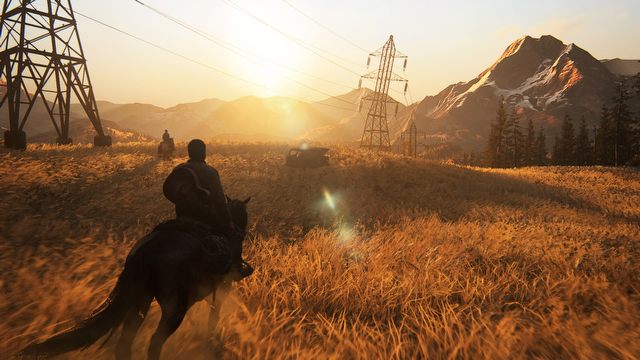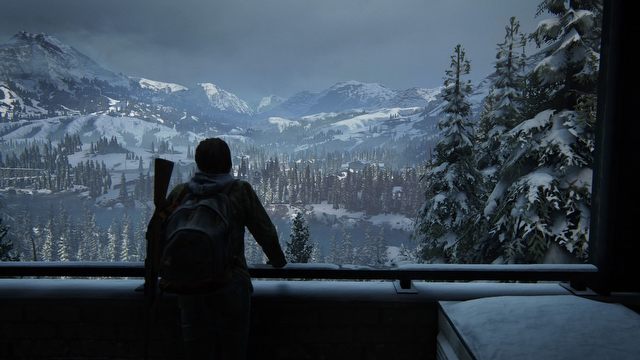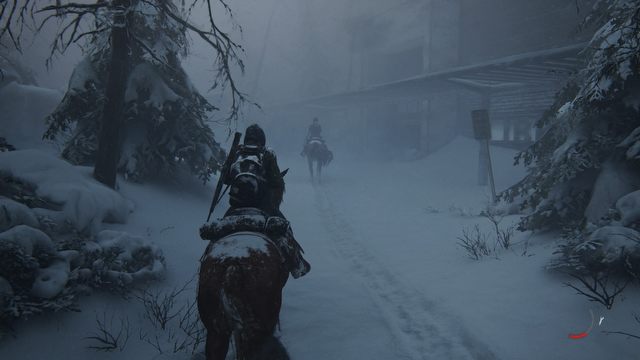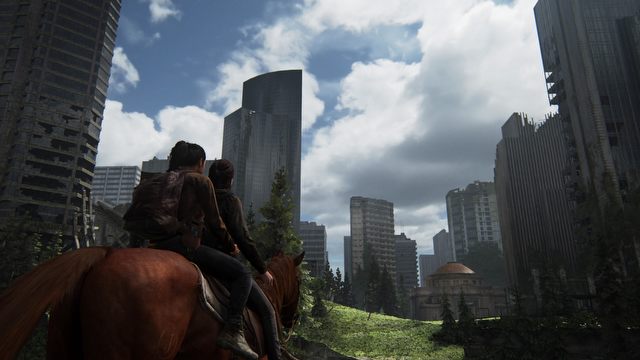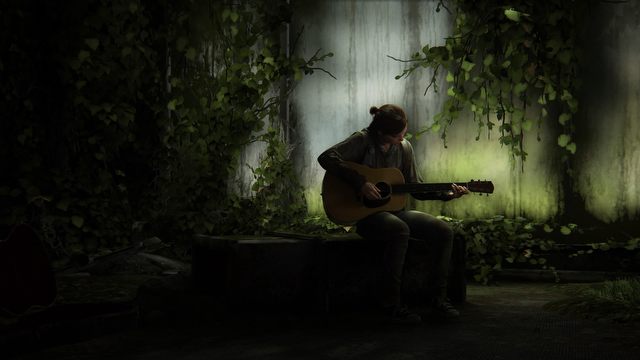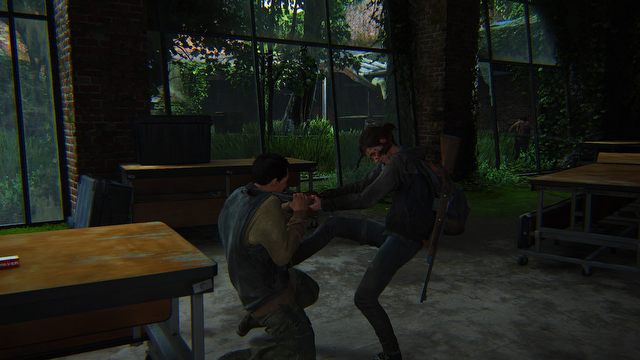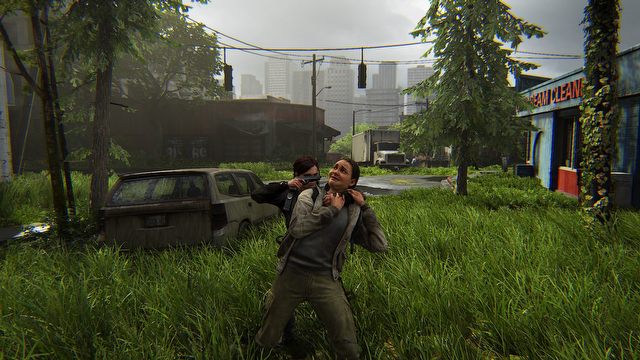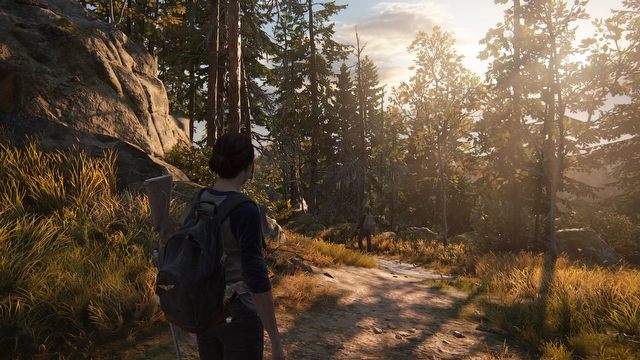Interview with Halley Gross: There's No Heroes in The Last of Us 2
The Last of Us 2 launched to quite a tumultuous reception. I spoke to Westworld script editor, Halley Gross, who co-created the game's story, and we talked about the game, the characters, and some other, very serious matters.

It should be more or less clear to you by now whether The Last of Us: Part II deserve a perfect score or not. Though I have long completed the game, I still can’t quite fill the void it left within me. I still play it, and I still wonder: how could the devs attain this kind of emotional magnitude?
I was fortunate enough to get some answers first-hand: from co-writer and narrative lead, Halley Gross. Somewhat fittingly for these times, we chatted thanks to the courtesy of cameras, microphones, and wireless data transmission.
We’ve picked our brains, wondering about what The Last of Us is about. Whiy is there so much violence and evil? How are people with trauma and PTSD supposed to function on their own? Is there any room for love? And lastly: what’s all that noise about?
The Last of Us Part Two is Halley Gross’ debut in video games, but titles like Westworld or Banshee certainly ring a bell. She developed the game’s incredible story in cooperation with Neil Druckmann.
SPOILERS
Our conversation obviously revolves around The Last of Us: Part II – given the nature of it, we inevitably have discussed key events, characters and twists of the game. If you want to avoid learning the vital parts of the story, add a bookmark to this article, and head over to our spoilerless review of the game.
I started the conversation in a rather conventional manner – for a good reason. The commotion this game has caused right before the release was trully torrental, and the web is brimming with speculations, both accurate and not. Have a nice read.
Matthias Pawlikowski: What’s The Last of Us II about for you as a writer?
Halley Gross: For me, The Last of Us II is the incredible opportunity to talk about the cycle of violence, to talk about trauma, and ultimately, about redemption. It’s about how we all make mistakes, we all lose our way, we all get devastated by life. And we all have an opportunity to try to redeem ourselves. And I think you see that with all our characters. Nobody’s a hero here, there’s no black and white. We aren’t interested in explicitly good or bad guys – everybody makes mistakes.
You said trauma, violence, redemption – I'm wondering if there's even still a place for peace, love, and respect in Ellie and Joel’s vile world?
That's such a beautiful question because that's a question about a heart of the game. They are living in that hostile world and even in the safest times they have to worry about the infected. But in Jackson, they had community – and they were loved for who they were. They were allowed to focus on romance and the future. And in terms of redemption – event if these girls both made a devastating choices, both have found ways to have a positive impact on other people. And look at Lev. Lev would not have survived, Lev would not have been able to navigate in this world without Abby and the tough experience that got her to that place. So yeah – I think that there's absolutely a room [for peace and love] but it has to be a conscious choice.
ABBY
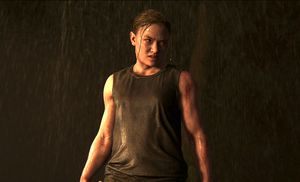
Abby is the second playable character of The Last of Us: Part II, kept well in secret before the release. She belongs to the WLF and it's her who ties the action of the second part, forcing Ellie to travel through America. Abby is well built and well trained. During her adventures, she will meet Lev and Yara, two siblings from the antagonistic Scars, whom she decides to take care of.
The original ended with powerful cliffhanger – we could assume that relation between Ellie and Joel won't be easy in part two. Can you talk more about how the relationships evolve?
So one of the things that was important to us was to talk about consequences, and how every choice you make has a consequence. And you see that in the way that we gave our NPCs names [notably including enemies – ed. note] and human-like characteristics. We want every choice to have to be a difficult one. And to be one that you have to make consciously. So Joel, at the end of the first game, obviously made a very big choice to save Ellie. And that had to have a consequence and you felt that at the end of the game; you felt like “was this going to be able to be put to bed.”
And through the course of the game, we watched that, even as both are trying to connect with each other, there is this secret festering between them. And so through the flashbacks you're getting to watch how, even as they working toward positive, there is this distrust, discomfort and this pain that eventually explodes and devastates their relationship.
And it's that level of devastation and loss that will, in part, propel Ellie on this journey of justice. Ellie was ready to forgive Joel, Ellie was ready to move on. Ellie was ready to make up for those years that she wasn't talking to him. And Abby took that away right on the threshold. And how much guilt and heartbreak that would feel that you had these years with Joel and you didn't take advantage of them. Your heartbreak and pain, which is all very justified... Ellie feels very wronged, she lost something that she desperately wanted.
What were the inspirations for the main problems of The Last of Us: Part II. Did any real-life events spur you to create particular parts of the story?
Neil [Druckmann, game director and co-writer – ed. note] was very much influenced Cormac McCarthy’s The Road and David Benioff’s City of Thieves, which you can see an easter egg of at the top of the Abby section in stadium. We were also trying to pull from the world we see around us. Because we're dealing with tribalism. We're dealing with fear. We're dealing with an increasingly scare-you world. So it's not hard to pull from real life or to pull from news footage to pull from people's true stories to try and flush out and make the world of The Last of Us 2 as authentic as possible.
Alrgiht. Why Seattle, though? How did you make the choice?
You know, honestly, when I came on board, they had already decided on Seattle. I'm not sure what the thinking was other than – obviously – you want to texturally feel really different. And you wanted to see a bigger part of the country than you had seen in the previous game. So with Seattle, you get this incredible level of water damage you haven't seen before and all that flooded streets. In "Finding Nora" [one of the levels] you see all these floods and foliage that we've never experienced before.
And also that groups that people in Jackson wouldn't have heard of. They wouldn't have heard of Seraphites. They only vaguely know of WLF. This is a world we don't know anything about how and it's time to learn about it.
WHAT’S TRIBALISM?
Tribalism is people combining in groups divided along radical criteria – even stronger than national interests. This tendency is especially prevalent in isolated communities, or those threatened by external factors. Such a society is based on rigid hierarchy and rules made according to its own judgment. Tribalism, as one can guess, makes it difficult to create larger communities (not to mention a nation). Tribes react to strangers with distrust or even hostility. An extreme form of tribalism are gangs, but these tendencies can also be seen in public debate around the world. Tribalism in The Last of Us: Part II comes in the shape and form of two factions – WLF and the Scars. Both of them, although not very radical at first, isolate and introduce strict internal laws and customs. Such deeply polarized and radicalized communities are unable to maintain diplomatic relations – they are condemned to war and mutual destruction.
The Last of Us: Part II is likely the first mainstream game to openly talk about homosexuality. Sure, we’ve had Mass Effect and Dragon Age, but these games treated non-heteronormativity as an option to explore, not a crucial part of the story. In some respects, you’re pioneers, laying the foundations for others. Aren’t you a bit nervous about that?
Our goal is to reflect the world we see around us. Ellie is canonically gay. They made that clear in "Left Behind" DLC. So we wanted to honor her character authentically. As a gay woman who's 19, she's going to have flirtations and she's going to have a relationships. And to understand what her future could be if she were to give up this quest for justice, you had to see her romantic life, you had to meet Dina and you had to understand what her values are at 19 years old.
It was about doing right by Ellie. Showing her in the most truthful manner that we could. And she is a gay woman.
Also representation is important to us. You know, we want to reflect the world we see around us. We have an incredibly diverse, supportive studio. And that matters.
The Road
Cormaca McCarthy’s The Road is an absolutely elementary exhibit of post-apo in literature. McCarthy wrote it in 2006, recieving the Pulitzer’s for it a year later. The story is about the relatioinship of a father and son traveling through ruined USA. This book remains a must-read classic of both post-apo, and contemporary literature in general.
You’re also talking about PTSD and trauma – I know it used to be a popular subject of the public debate in the USA. Can you talk more about creating characters in post-apocalyptic realities, and the role of PTSD in The Last of Us?
What we wanted to do is… when you look at this world, it is incredibly hostile, right? You've got the infected, you've got these hostile human groups. Every day you're fighting to survive. And that level of violence is going to cause some level of systemic trauma. There's no way that, that even in the best version, that's not going to have an impact on your soul.
And we want it to show different versions of that. So with every one of our characters they're processing it differently. Lev is supportive and guided by his faith and that helps him negotiate the world. Dina, when she's in the farm with Ellie, she says, “Yeah, this stuff bothered me, but for you, for him [her child], I deal with it.”
She is able to wrestle with the trauma she's been through and continue to be there for her partner, be there for her child. But there is no universal way people deal with trauma. I've had PTSD and I was drawing a lot on my experience on what that is like, but we also wanted to show that this hunt for justice is taking a radical toll on Ellie.
With every step of this way going after Abby becomes harder and harder and harder. And every time Ellie continues to push through that. It shows dedication, her myopic view on this. She needs this more than anything. She needs this to survive, to be a human, to function in society. She has lost herself to this hunt, very much so.
I sort of going back to when you asked me about her sexual orientation, it's like: showing her authentically struggle with not only the hostility she's experienced in this world, but the hostility she's experienced personally, that seemed the only way to approach Ellie. It was to say “Yeah, of course this has defined and changed who this woman is. Can she still pick herself back up? Can she still redeem herself? Is she going to get closure? If she finds Abby, who will she become on the other side of this journey?
PTSD – WHAT’S THAT?
Post-traumatic stress disorder is a mental disorder that most often occurs in victims of violence, who lose the ability to emphasize and understand others. It’s a response to overwhelmingly stressful experiences, mostly associated with soldiers, but in fact affecting all sorts of people (trauma from a pathological family, victims of assaults and acts of terror and war). Ellie and Abby, two significant characters of the game, have most of the symptoms of PTSD: flashbacks, nightmares, alienation, problematic responses to pleasure, anxiety and depression.
Is either faction in The Last of Us: Part II good in the conventional sense? Is either of them “more right?”
I think a thing that we wanted to try and depict in all facets of this game is that there is no good or bad. Everyone has a positive and negative side. So like with the Wolves... You know, our first glimpse of them is "kill all trespassers." They’re these violent people, who go after Scars, who go after strangers, who are willing to be brutal, to kill one of our most beloved characters. But when we're on Abby’s side, we see how they support each other, how they farm and have little kids running around in their community. They’re protecting their elderly and they're innocent. There's so much love there. There's so much love between Abby and Manny, and between this community.
And we don't spend as much time with the Scars, but even as you do see the religious extremism, we have Lev saying how – as much as people have become extreme – the tenets that their religion was based on, that their prophet extolled, are those of love, compassion, hope, and openness. That’s what’s been guiding him, and you see this love between these two siblings who were just there for each other, no matter what, and willing to risk everything for each other. Who, through their religion, find strength, security, and determination. So we're seeing both good and bad on both sides. Hopefully when people finish this game, put down their controller, and go back outside, they’ll look at groups that they perhaps didn't know much about, or which felt like “the other,” and they’ll be more open-minded to seeing them as multifaceted; giving them an extra shot.
Let’s say you’re one of the last of us. You’re out there, trying to survive, which faction would you chose?
(Laughing) Um, Well, I would probably choose... I like to read as you can see [pointing to the stuffed bookshelf behind her]. So I would probably choose the Wolfs because they have a really good library at the stadium (laughing some more). But I think Seattle is a pretty hostile place. I don't know if I would necessarily want to live there. I might go back to Jackson.
And the scars have that beautiful island...
They have, and they're really crafty, you know, they make those beautiful houses...
I was also wondering about the symbolism of the moths. I saw them during the loading screens, and there was another one on John's guitar. Moths are creatures of the darkness, but at the same time they have that incredible attraction to the light. Is this an allegory to the characters?
Absolutely. I think the moth is a lot of things for us and is a really great representation of Ellie. Because it is a creature that exists in the dark, but it's always looking for the light, right? But also they're incredibly fragile and they have such a capacity for change. Kind of like butterflies. They start as caterpillar and become this beautiful thing. And, they are often not as beloved as butterflies, not as glittering and shiny, but beautiful and fragile and delicate. And, um, I think all of those things contribute to who Ellie is. They all reflect what Ellie is, and whether she will be able to get to the light.
Thanks very much for the conversation.
